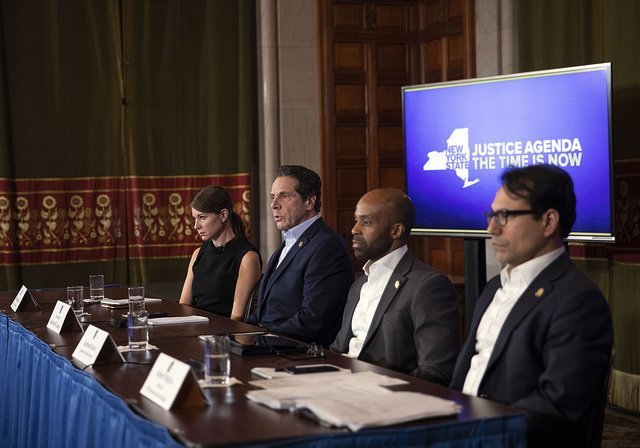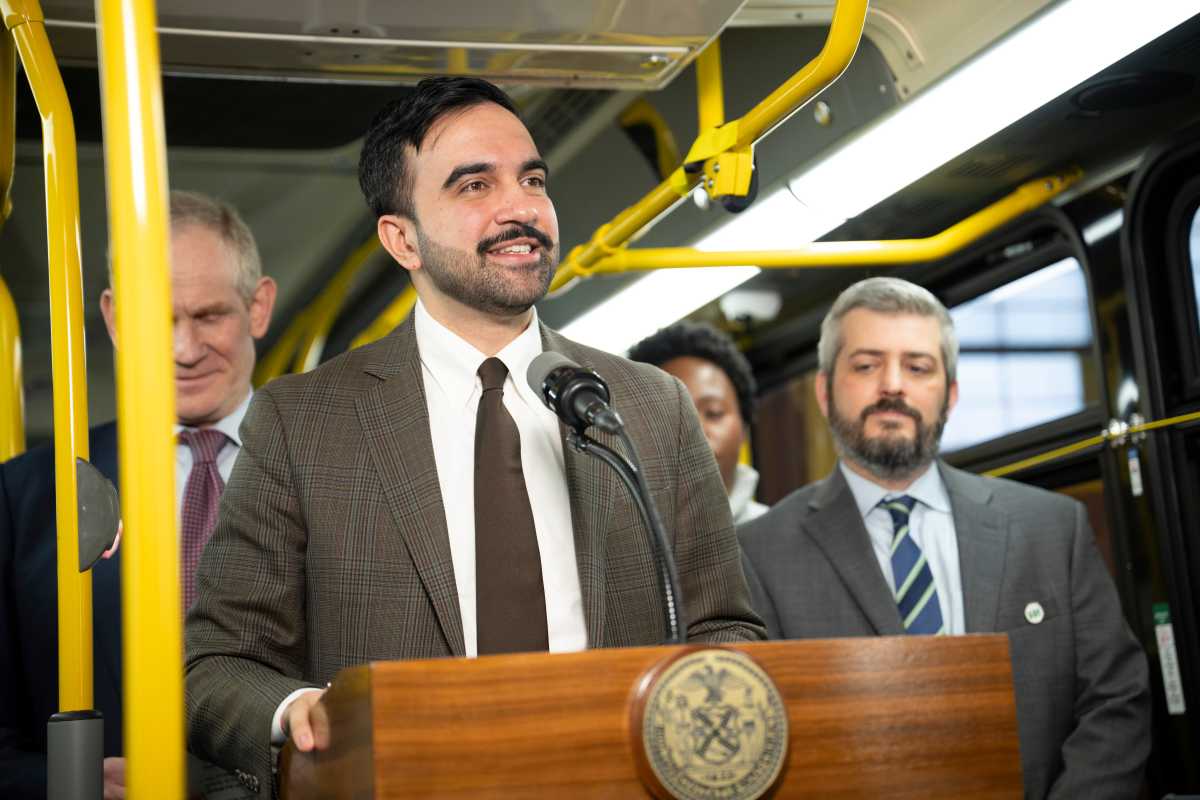Governor Andrew M. Cuomo this week hailed the recently passed $175.5 billion Fiscal Year 2020 state budget as both fiscally responsible while delivering comprehensive provisions to ensure social and economic justice for all.
The spending plan is the second highest in the United States with only California having a larger budget. New York is currently the 4th most populated state with about 20 million people.
In comparing state budgets, Florida, which is the third most popular state with slightly more than 21 million people, is currently in legislative negotiations to pass a roughly $90 billion budget or $85 billion less that New York. Florida’s proposed budget is also less than Mayor Bill de Blasio’s proposed 92.2 billion budget for the city.
Texas, which has a population of 28.7 million, does their budget every two years with their 2019-2020 budget coming out to about $110.1 billion or about $65 billion less than New York.

“This is the broadest, most sweeping state budget that we have done and for the ninth straight year it was both timely and fiscally responsible,” Cuomo said. “We are not here to do the easy issues – we are here to do the hard ones, the ones that gave you unease in the pit of your stomach, because those are the ones that need to be achieved. From making the property tax cap permanent to reforming and funding the MTA to making our criminal justice system fairer to fixing campaign finance, this budget head-on addresses the tough issues that have been facing this state for far too long. These progressive reforms combined with the rest of our 2019 Justice Agenda demonstrate to the nation that it’s possible to make the tough calls and move forward regardless of Washington’s dysfunction.”
Highlights of the FY 2020 Enacted Budget:
- State Operating Funds spending is $102.1 billion for the ninth consecutive year, holding growth to 2% (State Operating Funds exclude Federal funds and capital)
- All Funds spending $175.5 billion for FY 2020
- Makes permanent the 2% property tax cap, building upon the approximate $25 billion in taxpayer savings since it was implemented in 2012
- Reforms and funds the MTA with an estimated $15 billion to be raised through Central Business District tolling
- Increases school aid by over $1 billion, bringing total school aid to a record $27.9 billion
- Delivers sweeping criminal justice reforms by eliminating cash bail for misdemeanors and non-violent offenses, ensuring the right to a speedy trial, and transforming the discovery process
- Builds upon the Governor’s unprecedented commitment to invest $150 billion in infrastructure projects over the next five years, generating 675,000 jobs
- Codifies provisions of the Affordable Care Act
- Bans single-use plastic bags
- Launches food waste recycling program
- Extends Janus protections to all local governments and guarantees the right to organize and collectively bargain
- Builds upon voting reform passed within the first 10 weeks of the legislative session
- Invests an additional $500 million in clean water infrastructure, increasing the State’s historic investment to $3 billion
In regard to raising oney for the MTA, the state’s much talked about congestion pricing toll to drive into Manhattan south of 60th Street, the budget does not break down if all the money will go only to the city’s transit, but just notes “it will leverage $15 billion, which will be dedicated to MTA capital needs,” according to Cuomo’s press release on the budget.
About $365 million will also go to the MTA via a progressive mansion taxwhile the state will also begin charging a internet sales tax, which is expected to generate $160 million annually in new revenue for local governments and $320 million for the MTA capital plan lockbox.
The budget also includes an increase of over $1 billion in school aid, which will bring total school aid to a record $27.9 billion, with over 70% of the increased funding going to poorer districts. In addition, new reporting requirements will address imbalances in the distribution of resources by prioritizing funding at the individual school level in order to advance a more transparent, equitable education system.
The budget also includes several criminal justice reforms including the elimination of cash bail for misdemeanors and non-violent felonies, alongside a new requirement that police officers must issue desk appearance tickets to most people charged with misdemeanors and Class E felonies, rather than making a custodial arrest.
The budget also establishes a public financing commission that will have the binding power to implement public campaign financing for legislative and statewide offices, authorizing up to $100 million annually in public funds. The commission will determine specific aspects of the public financing system, including eligibility thresholds, public financing limits, and contribution limits for participating candidates.
The commission’s findings will be due in a report by December 1, 2019 and will be binding unless modified by law within 20 days.
The budget also includes $10 million to support the expansion of the first-in-the-nation Liberty Defense Project.
Established in 2017, the Liberty Defense Project has provided more than 25,000 vital legal services to immigrants and communities targeted by harsh federal immigration policies. The LDP expansion includes Project Golden Door, which will provide crucial services to immigrant children and families in New York, and a Regional Rapid Response program to quickly respond with effective legal services on the ground, including in response to targeted raids and arbitrary arrests by ICE.
These enhancements build on the network of services currently being provided by current LDP partners and create more uniform legal coverage for immigrants across the state, particularly in under-served communities, Cuomo said.










